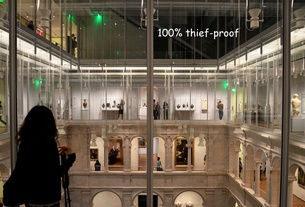{shortcode-a2019f48d26abf20ceb8e2339bb6ead9f3d20ce5}
With wholly-owned alternative assets, for example, HMC aims for compliance with industry-specific ESG standards.
“We’ve always tried to manage our forests to standards that at least could be certified by a third party auditor,” Andrew G. Wiltshire, head of alternative assets at HMC, says.
He said that HMC takes a similar approach across all assets in the natural resource portfolio.
“We’ve looked for certification schemes that provide similar kind of assurance that what we do, according to a third party independent source, is considered first class, genuinely sustainable, and good for all stakeholders involved,” he says.
Yet HMC officials are careful to not attribute this focus on ESG standards to a deeper social role of the endowment’s investments. When asked how moral imperatives played into responsible investing, Pedicini responds by only discussing the long-term financial benefits of ESG concerns.
{shortcode-539c3ec8471bf410195b539d0061d9e82d182fea}
On the topic of the fossil fuel industry, University President Drew G. Faust has long acknowledged that Harvard as a research institution has an important role to play in combating climate change, but she has said repeatedly that manipulating the endowment should not be part of those efforts.
“The endowment is a resource, not an instrument to impel social or political change,” Faust wrote in an open letter to the Harvard community in October 2013, as she explained the University’s stance against fossil fuel divestment.
DRAWING THE LINE
Voices on and off Harvard’s campus believe that every one of HMC’s investment decisions carries certain serious political and social ramifications. Given that the significance of the endowment expands beyond Harvard’s balance sheet into the outside world, they argue, the University should ensure that its investments reflect the ethical outlook of the broader campus community, which includes students, faculty, and alumni.
{shortcode-84839ca4fddf33e12707df417e23496daaa06f84}
David Wood, director of the Initiative for Responsible Investment, a research organization housed in the Hauser Institute for Civil Society at the Kennedy School, argues that, regardless of how vocal these groups are, there will always be a moral boundary that, even if unacknowledged by officials, will rein in investment activities.
“One way to think about this is to acknowledge the implicit limits to what people would find acceptable,” Wood says. “No one now presumably in this kind of space would invest in the slave trade in order to make a profit, even if it was the best returning investment out there. Everyone has a limit and the question is, where do you set it?”
Whether for financial or political reasons, the University has in the past divested its endowment from interests that broad swaths of Harvard’s stakeholders found objectionable. Specifically, University leaders removed investments in some companies doing business in apartheid South Africa in 1978, from tobacco companies in 1990, and from PetroChina, an oil company with close ties to genocide-ridden Sudan, in 2005.


